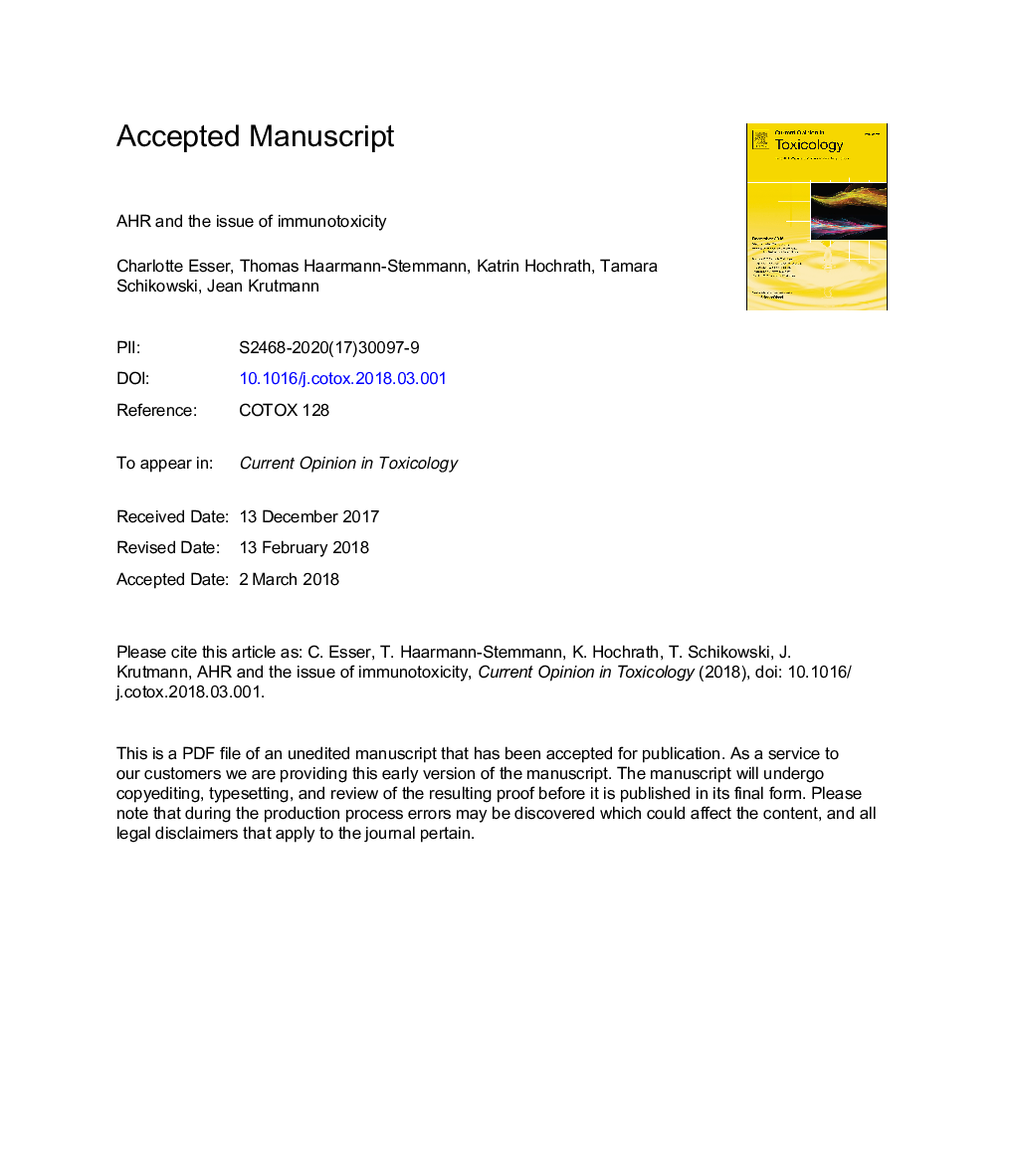| Article ID | Journal | Published Year | Pages | File Type |
|---|---|---|---|---|
| 8920181 | Current Opinion in Toxicology | 2018 | 26 Pages |
Abstract
The aryl hydrocarbon receptor (AHR) is a ligand-activated transcription factor, which was originally discovered as a master regulator for genes coding for xenobiotic metabolizing enzymes. The bad reputation of AHR as the mediator of immunotoxicity by ligands found in environmental pollutants (e.g. dioxins, polycyclic aromatic hydrocarbons) seems to contrast with the recently discovered important role of AHR for functioning adaptive and innate immune responses, which are mediated by “natural” ligands found in plants or generated endogenously. We discuss here major research findings regarding the immunological outcome of AHR-activation and look at two areas of future immunological/immunotoxicological concern, (i) the AHR-microbiome axis and (ii) the issue of participation of AHR in the adverse immune effects of airborne particulate matter. They showcase the surprises that AHR signaling still has to offer for basic biology and for its relevance in global health concerns.
Related Topics
Life Sciences
Biochemistry, Genetics and Molecular Biology
Biochemistry
Authors
Charlotte Esser, Thomas Haarmann-Stemmann, Katrin Hochrath, Tamara Schikowski, Jean Krutmann,
